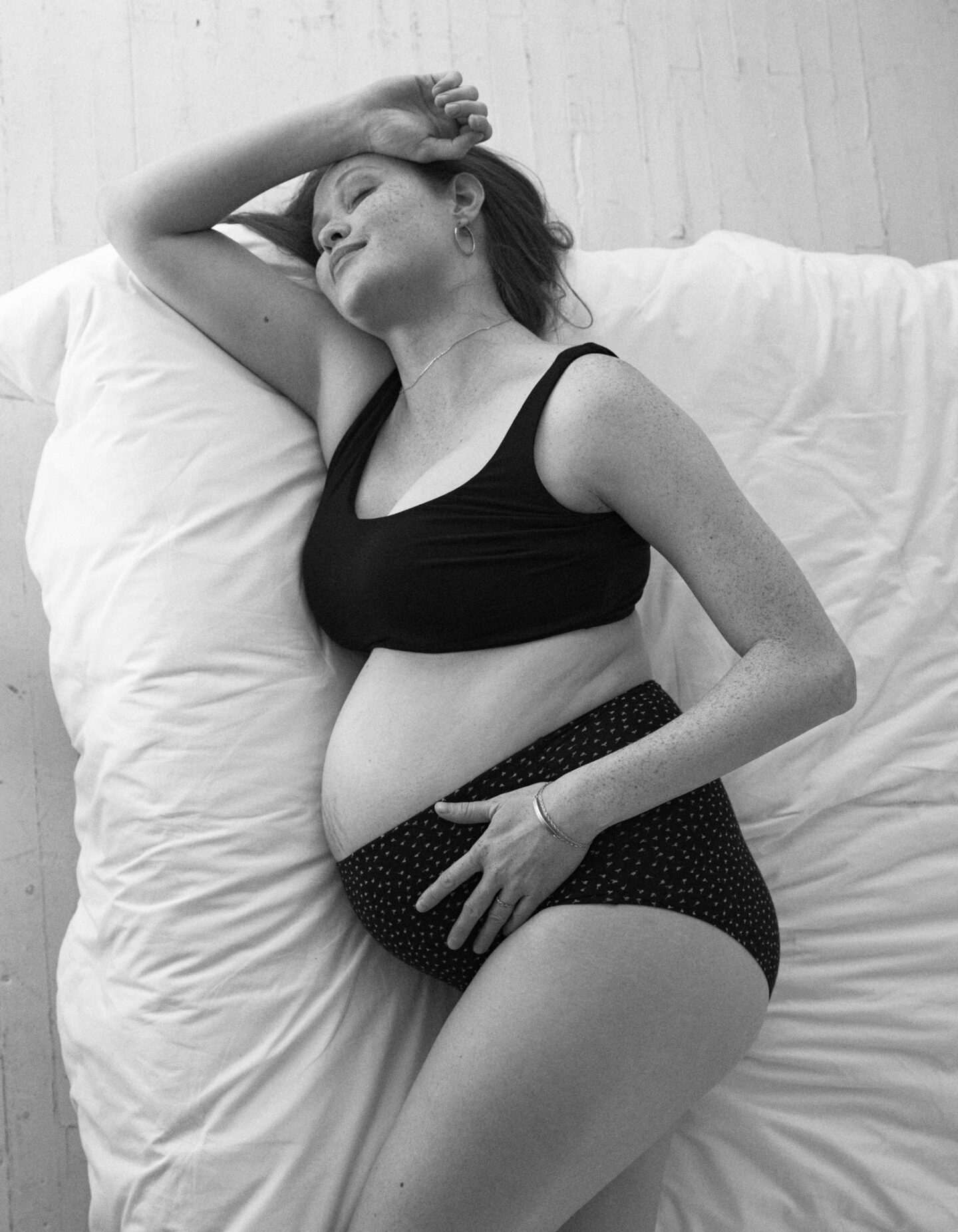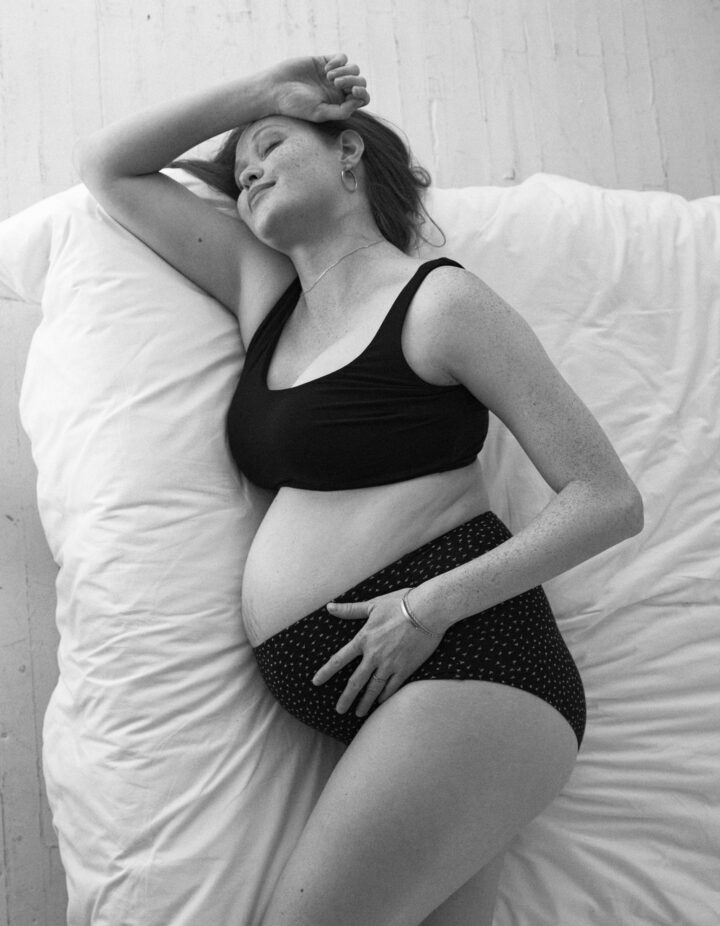Pregnancy can be a fickle b****. There we said it. The rules of what you can and can’t do, what you should or shouldn’t do, or what you kind of can but really shouldn’t do can be confusing AF. And even though we’ve busted a ton of myths about pregnancy as of late, we keep coming back to this one thing: Bed rest. What is it? Is it real? Is it bad? All the things, tbh.
You’ve probably only heard those two words thrown around when someone was super sick or in baddddd shape, but that’s not always the case. With regard to pregnancy, it might not even be prescribed because there are complications, as much as it is a fail-safe to ensure certain conditions, symptoms, or aggravators don’t pose unnecessary threats to a growing fetus and mama bear.
We did some recon to see what bed rest means and how people feel about it (espesh in the medical community, because science), and here’s the sitch:
Activity restriction and bed rest are NOT one in the same.
The terms bed rest and activity restriction are often used synonymously, but according to the Society for Maternal-Fetal Medicine (SMFM), there are finite differences between the two. Bed rest is described as “limited ambulation of not more than 1 to 2 hours per day with bathroom use and bathing permitted,” whereas activity restriction is a much broader, yet still deliberate scale-back of the time a mom-to-be spends on her feet. Activity restriction is the more “preferred” of the two.
At one time, certain risk factors in pregnancy precipitated an activity restriction recommendation.
Note how we said “at one time,” because these days OBGYNs and Maternal Fetal Medicine providers are much less likely to tell their patients they need to stop ambulating. (It means walking and yes, we had to look it up) Hot pregnant moms rejoice, you can still do your stuff (and then take a nap, when said stuff knocks you out) 🙌.
These are the risk factors most commonly associated with activity restriction: preterm contractions, arrested preterm labor, short cervix, preterm premature rupture of membranes (PPROM), elevated blood pressure, preeclampsia, intrauterine growth restriction (IUGR), placenta previa, threatened abortion, and gestation of multiples.
But there are risks to the rest, too.
Now, this is where doctors and pregnancy care professionals are carefully considering the ‘risks versus benefits’ of bed rest/activity restriction—because, yes, some OBGYNs and MFMs are def still prescribing it. According to The American College of Obstetricians and Gynecologists (ACOG), there is no credible evidence to prescribe bed rest in pregnancy for the prevention of preterm labor, and it should not be routinely recommended.
Why not? Well, there can be major red flags and causes for concern, says Dr. Stephanie Sublett, MD, OBGYN.
Her hot take?
“Bed rest is generally not recommended during pregnancy. ACOG (American College of Obstetrics & Gynecology) & SMFM (Society for maternal and fetal Medicine) caution against the routine use of bed rest in pregnancy to prevent preterm labor or the prevention of preeclampsia and its complications. This is because there is no scientific evidence that bed rest actually helps prevent preterm birth or preeclampsia. In fact, several studies have shown that being put on prolonged bed rest or activity restriction can actually increase your risk for blood clots, and loss of bone, and muscle strength. There are also several studies that show the negative psychosocial impact of bed rest or activity restriction on the mother and family as well.”
But what if your doctor really says it’s necessary? What do you do, then?
Dr. Sublett says asking questions and getting a totally transparent rundown from your doctor is 100 percent necessary. “I encourage you to ask your doctor what activity is allowed—that won’t end in unwanted maternal complications—to make sure that some activity is still permitted.”
So where do we rest on bed rest/restricted pregnancy?
We’re always behind the “you do you” mantra, but when it comes to certain things (like, for all intents and purposes, slightly extreme/over-cautious medical protocols) making pregnancy more complicated than it already is, we’re more inclined to say stay safe in the “happy medium.” If you’re regularly active and it makes you feel good to be out and about, walking, running, spinning, then go for it, mama. If you’re nearing the end of your pregnancy and you’re FEELING it hard, then by all means, power down. Reset, recharge, re-ality TV binge, so you can mom-boss it all the way to the end.
Credit to Stephanie Sublett, MD, OBGYN, IBCLC
Instagram – @readytoslaymama
https://www.instagram.com/readytoslaymama/
TikTok- @readytoslaymama
https://www.tiktok.com/@readytoslaymama?_t=8ZgG4zSKSLa&_r=1




